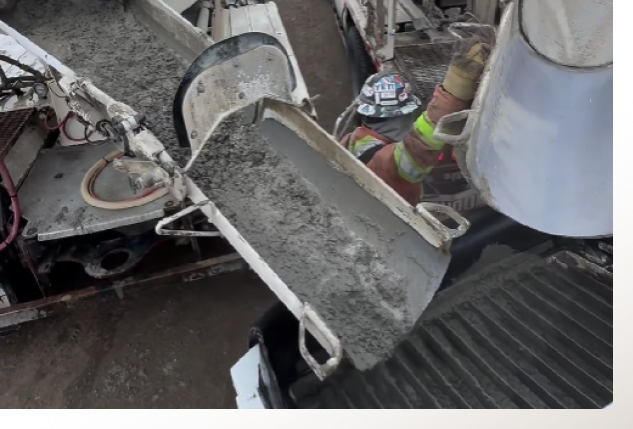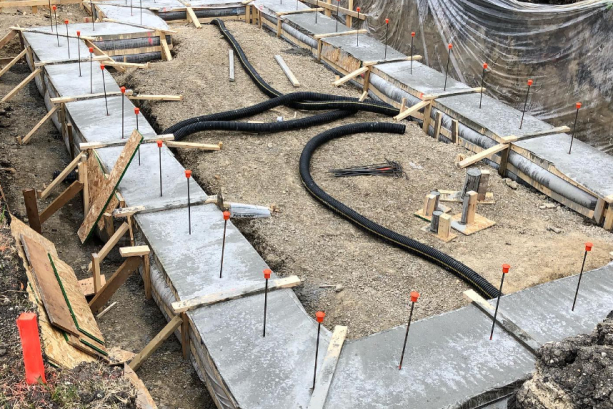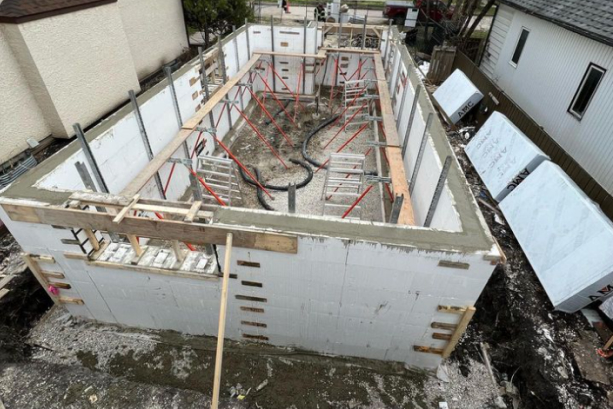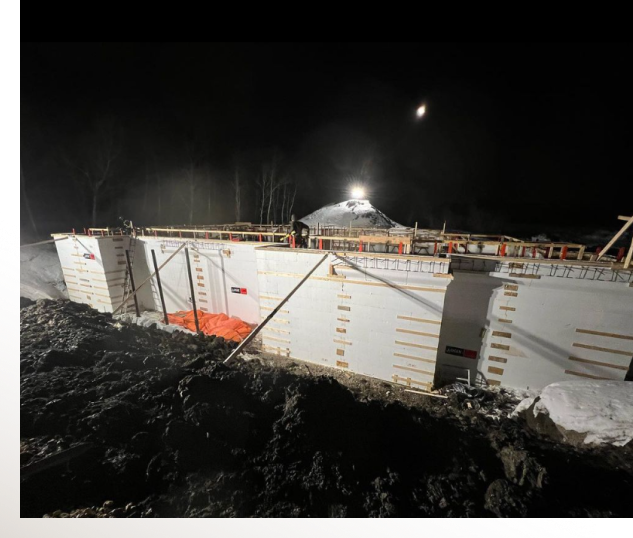ICF Vs Poured Concrete Foundations
Home ICF Vs Poured Concrete Foundations
ICF or Poured Concrete Foundations: Selecting the Best for Construction
Discover the distinctions between Insulated Concrete Forms (ICF) and conventional poured concrete foundations to make a well-informed choice.
Two Foundation Construction Materials: ICF vs. Poured Concrete Foundations
Insulated Concrete Forms Foundations
Insulated Concrete Forms (ICFs) offer robustness and thermal efficiency for underground walls. Building ICF foundations includes stacking expanded polystyrene foam panels or interlocking hollow extruded polystyrene foam along the foundation’s length. These forms are strengthened and supported.
Subsequently, concrete is poured into the hollow form panels. The construction of ICF foundations presents a rapid and uncomplicated approach to constructing underground walls.
Poured Concrete Foundations
In the 1980s, poured concrete foundations gained popularity. Building this type of foundation entails placing moulds on spread footings, inserting steel rebar between them, and finally, filling the moulds with concrete.
These walls are typically 8-10 inches thick and can come with different surface designs, such as brick, to give a polished look.
The Significance of a Sturdy Foundation
A solid base provides structural stability to a building or residence, shielding it from natural elements and ensuring an environment for living and working.
The foundation not only upholds the building but also acts as a barrier against water and soil vapour. Notably, the foundation is accountable for transferring all loads from the building to the ground.
Various types of foundations are utilized in contemporary construction, such as crawlspace, slab-on-grade, and basement foundations. While each has advantages, a sturdy foundation is vital for any building.
A basement foundation plays a crucial role in supporting the entire building structure. Elevated at least eight feet above the footings, it provides valuable space for living and storage.
For Strong and Energy-Efficient Foundations, Choose ICF
ICF and poured concrete foundations serve the common purpose of providing structural support to a building and withstanding lateral forces and buckling. However, an effective ICF foundation excels in energy efficiency and durability, offering superior resistance to cracks and moisture infiltration compared to traditional poured concrete foundations.
Construction professionals and designers seeking to create long-lasting, sustainable, and energy-efficient foundations should explore the benefits of ICF building methods.
ICF Vs. Poured Concrete Foundations
ICF foundations offer higher energy efficiency and are less susceptible to moisture and cold than traditional poured concrete foundations.
With an R-value exceeding 20, ICF foundations outperform the less insulating poured concrete foundations with R-values below 3.
The protective forms of ICF foundations reduce the risk of cracking and leaks, making them more durable. Their construction flexibility allows for year-round building unaffected by cold temperatures.
Additionally, ICF foundations exhibit double the compressive strength of conventional poured concrete foundations, minimizing the chances of moisture seepage.
On the other hand, poured concrete foundations are more susceptible to ground shifts and water pressure, increasing the risk of cracks, leaks, and subsequent mould and mildew issues.



